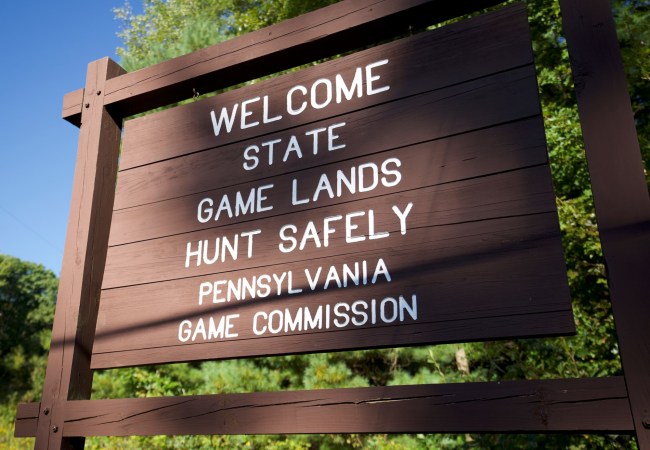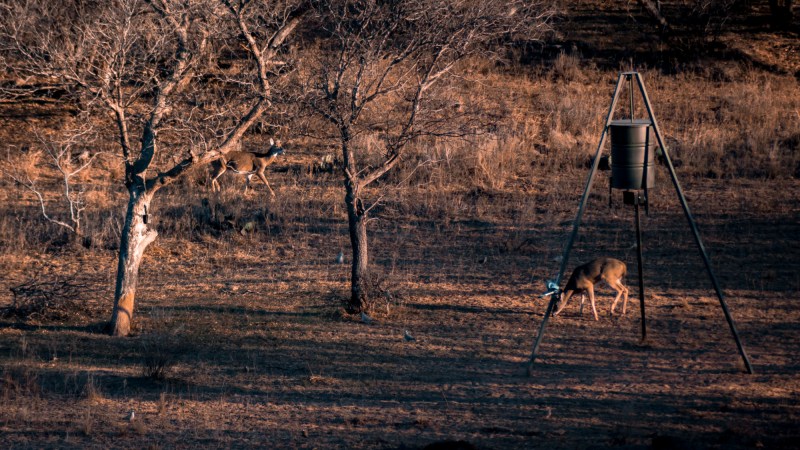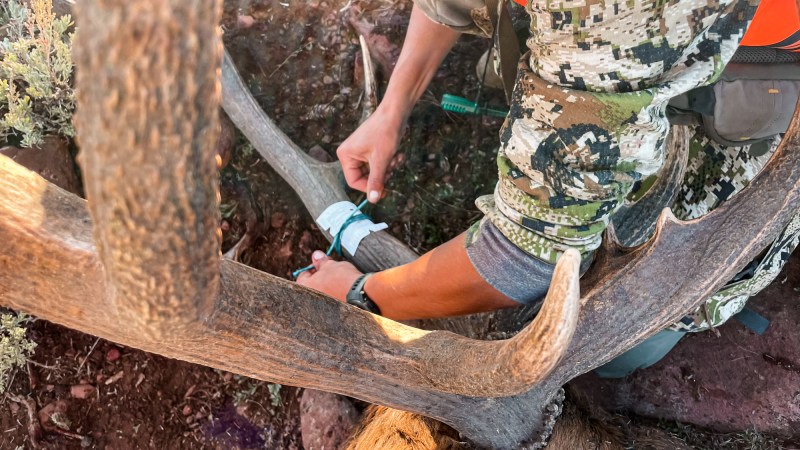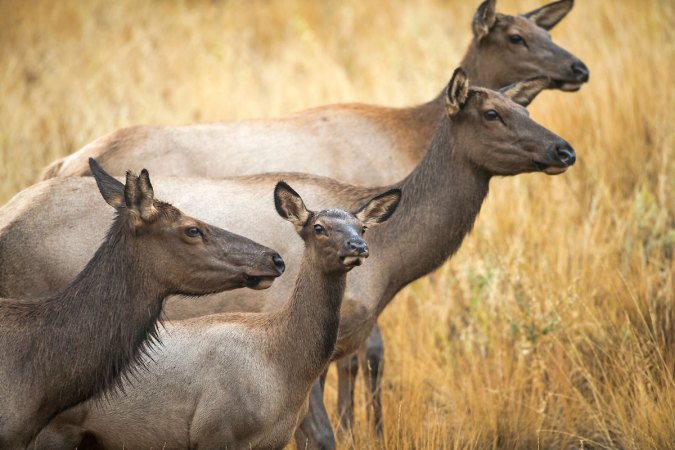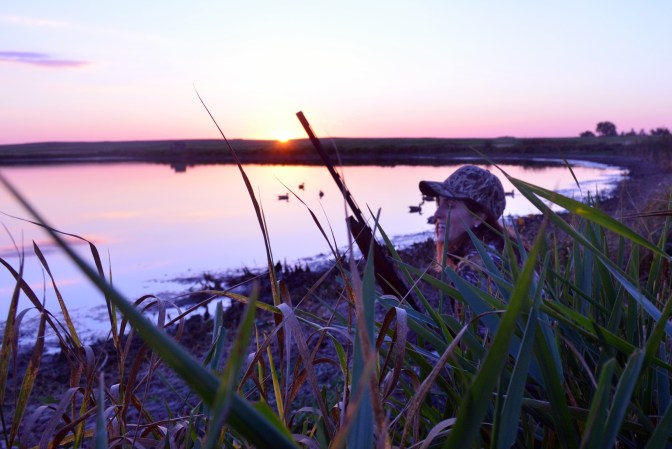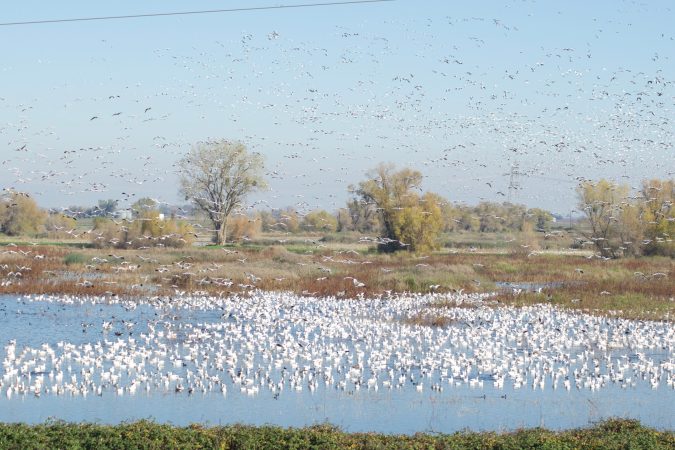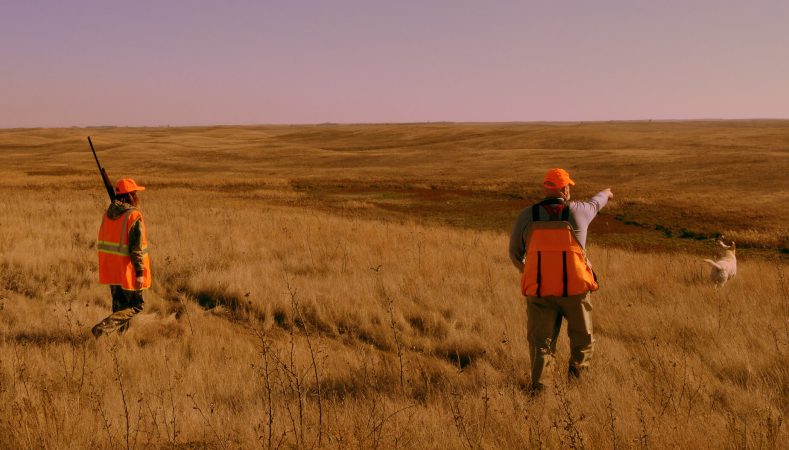In his state of the state address last month, Nebraska Governor Jim Pillen announced Operation: Clean Out the Closets, a coordinated initiative to sweep cash “hoarded” by state agencies into Nebraska’s general fund in order to reduce property tax increases.
In all, Pillen’s administration identified some $274 million in over 500 agency funds, including nearly $10 million in two funds administered by Nebraska’s Game and Parks Commission, the Game Fund and the state’s Habitat Fund.
Last week, in an Appropriations Committee hearing, state senators seemed to go along with Pillen’s “Clean Out the Closets” initiative as they heard details of the governor’s biennial budget. The trouble is, that $10 million in Game and Parks accounts isn’t tax-payers’ funds. It’s revenue mainly from hunting and fishing licenses, and is used as the state’s match for millions in federal funds that pay for much of Nebraska’s wildlife and fisheries management.
If those license revenues are “swept” into the state’s general fund, Nebraska is at risk of losing as much as $20 million annually in federal funds, as a series of opponents testified before the Appropriations Committee.
“This transfer takes money away from sportsmen and women and threatens the North American Model of Wildlife Conservation and the successful ‘user pay-public benefit’ program we have established to fund state-based wildlife conservation in the United States,” noted Delta Waterfowl in an email blast to its members.
But a senior state senator from western Nebraska, Steve Erdman (R), is among the most vocal proponents of not only defunding the fish-and-game agency, but also for dedicating as much as $10 million in hunting-license revenue to pay for wildlife damage.
In last week’s Appropriations Committee hearing, Erdman asked Tim McCoy, the director of Nebraska Game and Parks, if the state’s fisheries-enhancement work is resulting in more people catching fish. McCoy noted that fishing license sales are up since the Covid-19 pandemic, and that with increased hatchery production, angler catch rates are trending upward. That answer didn’t satisfy Erdman.
“In my opinion, and you’re not going to be surprised by this,” Sen. Erdman told McCoy. “I would like to see your department begin to manage the fisheries in a manner that we could actually catch fish. Because in the locations I go to, I call them the Dead Sea. So whatever program you’re using or whatever you’re doing to enhance the fishing, is not working. And your management of wildlife, especially mountain lions and elk, is subpar.
“So whatever money we can possibly take from you,” Erdman continued, “I’m in favor of that until you guys start managing what you should be managing.”

The hearing set into motion a network of conservation groups who, recognizing that this “diversion” of dedicated license funds could destabilize a national structure of conservation funding, mobilized opposition to the Nebraska legislative action. The issue, explains Todd Adkins of the Sportsmen’s Alliance, is larger than the diversion of license funds.
“This diversion of funds could call into question future federal funding through Pittman-Robertson and Dingell-Johnson acts, which for Nebraska exceeded $20 million in 2023, while also opening the state to penalties for previously appropriated funds,” says Adkins. The Sportsmen’s Alliance noted Erdman’s apparently personal gripe with the fish-and-game department.
“Senator Erdman is so upset that he can’t personally catch a fish that he’s threatening to deprive the state of millions of dollars of crucial conservation funding,” says Adkins, vice president of government affairs for the Sportsmen’s Alliance. “What’s really shocking, however, is Senator Erdman’s unbelievable disdain for concerned sportsmen and women when they contact him about the issue.”
After the Sportsmen’s Alliance alerted members about Legislative Bill 1413, the bill to transfer the game fund’s balance, Erdman reacted hotly to requests for him to reconsider.
“I will take every dime from Game and Parks because it is the poorest managed agency of our state,” he responded. “These emails mean absolutely nothing to a State Senator.”
“Senator Erdman might do well to understand just how many hundreds of millions of dollars hunters and anglers contribute to Nebraska’s economy, and that non-residents are a huge source of that economic impact. This level of contempt for constituents and citizens, regardless of where they live, by a sitting senator is mindboggling.”

Photo via Steve Erdman for Legislature / Facebook
Erdman’s gripe with the state’s Game and Parks Department isn’t new. He previously introduced legislation to move the agency’s headquarters from Lincoln to Sidney, in order to take advantage of office space vacated by Cabela’s and to “move the agency closer to where fish and wildlife actually exist” in Nebraska. He’s also recommended diverting $10 million of the agency’s Wildlife Conservation Fund to pay landowners for game damage.
Erdman’s constituents are familiar with his agenda.
“He’s often been a bit of a wild card in the legislature, like when he proposed to move the NGPC headquarters from Lincoln to the vacant Cabela’s buildings in Sidney,” says Joe Arterburn, former mayor of Sidney, Nebraska, and a former Cabela’s employee. “Not that we would have minded the economic development it would have meant to the city, but it was unrealistic and it felt like we were a pawn in his apparent feud with the agency.”
Diversion of Wildlife Funds Is a National Issue
Nebraska’s senate isn’t alone in its reconsideration of the value of license revenue, and the federal funds they unlock.
Last fall, Pennsylvania’s state senate passed House Bill 1300, which proposed to divert $150 million from the state’s Game Fund to Pennsylvania’s Clean Streams Fund, creating the same concern over the loss of federal matching funds that Nebraska faces now. After vigorous opposition from conservation groups, Pennsylvania’s House passed a version of the funding bill that didn’t include the Game Fund diversion.
The issue in both states is the enabling language that allows states to receive “their” share of both Pittman-Robertson (P-R) and Dingell-Johnson (D-J) funds. Those are the accounts that distribute, respectively, Federal Aid in Wildlife Restoration Act funds for wildlife-related projects and Sport Fish Restoration Act funds for fisheries-related projects. Those national accounts are funded by taxes on guns, ammunition, and archery gear for the P-R account and fishing tackle and marine fuel for D-J funds. The U.S. Fish and Wildlife Service receives these tax revenues, then redistributes them to states based on a formula that considers the number of licensed hunters and anglers and the physical size of the state.
In turn, those allocations fund issues like wildlife management, habitat enhancement, public property purchases, hatchery production, and law enforcement.
The main requirement of most states is to pony up at least 25 percent of the share of these projects. Most states use hunting and fishing license revenue for their share. The federal P-R and D-J funds cover the remaining 75 percent.
But the USFWS requires each state to confirm that neither the matching funds nor the excise-tax funds are “diverted” to non-qualifying accounts, including states’ general revenue funds. The legislative action in both Nebraska and Pennsylvania would be considered “diversions,” which means that not only would those states not be eligible to receive their share of tax funds, but might have to repay previously diverted funds.
In other words, “diversion” is the poison pill of conservation funding in America, but it’s not punitive enough to keep some governors and state legislatures from diverting sportsmen’s and women’s license dollars.
Why are these dedicated fund accounts so appealing for politicians? Partly it’s because governors and legislators don’t recognize that fat account balances aren’t dollars “hoarded” by fish-and-game agencies, but rather balances that are collected at one time of year and then spent over the course of the year, and which are leveraged on a 1-to-3 basis for federal funds.
“In both Nebraska and Pennsylvania, one way to look at this as a move by a Republican governor seeing what’s possible, in terms of testing for pushback, much as Republican leadership did in the Pennsylvania legislature last year,” says Adkins of the Sportsmen’s Alliance. “This sells well to a certain crowd of voter” who is both fiscally conservative and against federal contributions of any kind.
As for Erdman’s opposition?
“This one senator from western Nebraska happens to have a more generalized hobbyhorse fueled by his ongoing feud with the agency. He’s not necessarily the reason for the [appropriations bill] but he’s having fun attacking the agency in the meantime.”
As for the fate of the Nebraska budget bill, Adkins notes that the governor’s office has indicated support for removal of the diversion language from the bill, but at deadline, both sections 30 and 31 — which detail the Game and Parks fund accounts — remained in the bill. The Nebraska Senate Appropriations Committee is taking into consideration the governor’s recommendation before they vote on their version of the bill, which will then advance to the Senate floor for a full vote.




